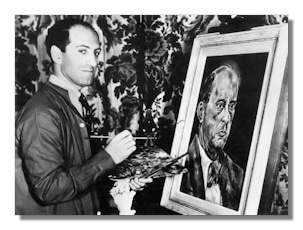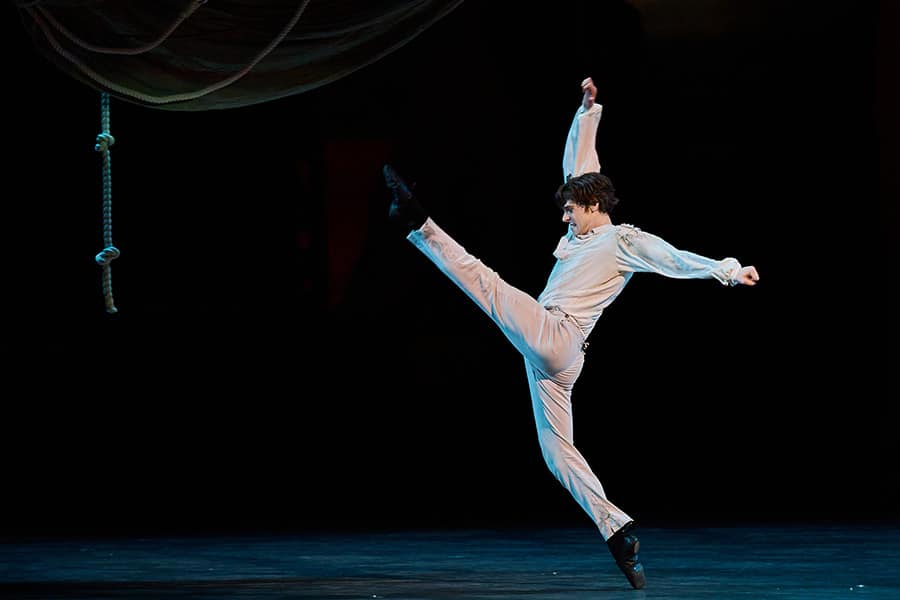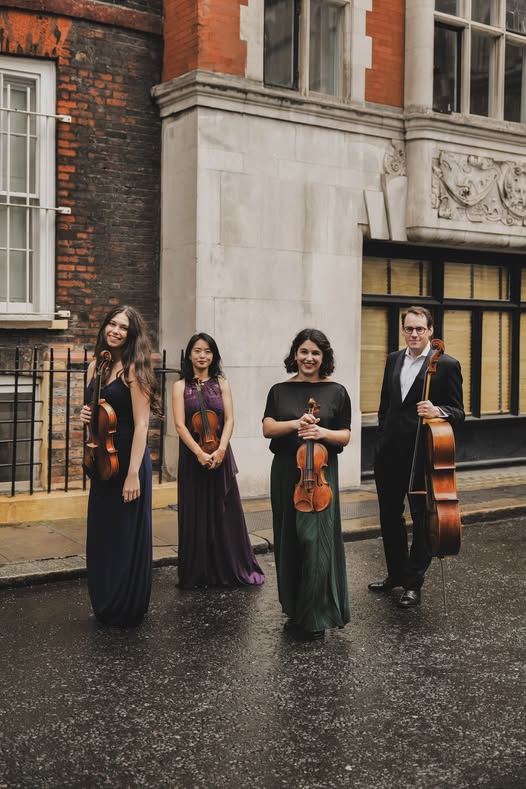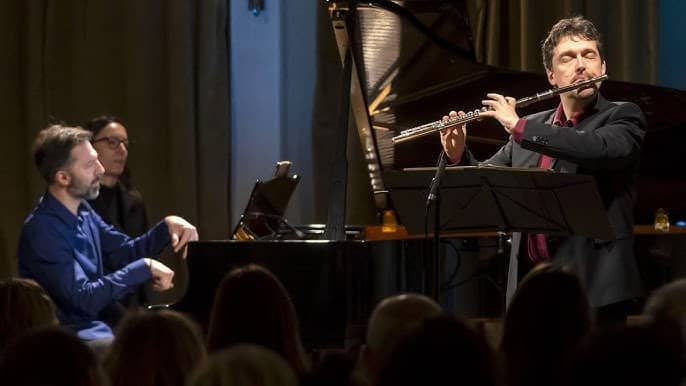Who am I, asks Arnold Schoenberg
RIPIt was seventy years today, on July 13, 1951 that one of the great redefiners of music went to his rest in Los Angeles.
There are none so brave today, none so challenging to the complacent status quo.


It was seventy years today, on July 13, 1951 that one of the great redefiners of music went to his rest in Los Angeles.
There are none so brave today, none so challenging to the complacent status quo.

The press service of the Mariinsky Theater has…

From the general manager’s self-admiring Sunday sermon in…

The Doric String Quartet, on the road since…

From the French magazine le canard enchainé, under…

Session expired
Please log in again. The login page will open in a new tab. After logging in you can close it and return to this page.
I wrote a lot about him, his works, first wife (Zemlinsky’s sister) …Unfortunately: only in Dutch. But, but… discography of his Gurre;lieder I do have in English too!
https://basiaconfuoco.com/2021/02/23/schonbergs-gurre-lieder/
Thank you for the moving Schoenberg video. Will he ever receive the general recognition he deserves? A Titan, living through a tormented period and revealing this in his music. But it is all music, often of great beauty. The culture which grew from his art was often spurious, an Emperor’s New Clothes culture. He was, though, by no means the only believable figure of the genre. He and the other believable ones (admittedly a subjective choice!) prove that a great musician flowers in any garden. One must simply visit it.
He has gotten recognition far in excess of his value to music.
A silly little experiment in arranging pitches derailed all good sense in Western music.
A great man, whose example we would do well to follow today.
Ho ho ho!
The pseuds of the musical world pay lip service to poor old Arnold, but in terms of music people actually want to listen to his influence has been negligible. 70 years after his death, if you want to make sure a concert doesn’t sell out, just add a Schoenberg work to the programme. (And yes, I do know about Gurrelieder, Verklarte, etc.)
It may not have been a sold out house but it was darn close. – an October 1974 Friday afternoon Philadelphia Orchestra concert in which Ormandy conducted Schoenberg’s 5 Pieces for Orchestra and Piano Concerto (Walter Klein was the soloist) and the Tchaikovsky “Polish” Symphony (#3). My first exposure to Schoenberg, other than Verklarte Nacht, and I stopped at Sam Goody and picked up the Gunter Wand recording of the 5 Pieces on my way home.
Thank you for reminding us of this anniversary!
Here’s a fascinating radio programme celebrating his life from 1967 which includes commentaries from Getrud Schoenberg, Roberto Gerhard, Ernst Krenek, Rudolf Kolisch etc.
https://www.youtube.com/watch?v=btlxxfXcXR0&list=PLP98DH9xMSXLDNxO52DjWkvlMHR7LJDO2
Regarding your Arnold Schoenberg post today, “There are none so brave today, none so challenging to the complacent status quo.”
I respectfully disagree, Norman, believing my fully notated compositions and performances for Meruvina are in complete opposite of the status quo, together with content and syntax imbued with and reflecting how American jazz and Indian classical music superseded European classical music in the era I was born, as prior to myself reflected in the music of the four minimalists, Reich, Riley, Young, and Glass, even if I find these four understandably went too far in the opposite direction from serialism, the break from such stasis being so momentous; my favorite among these four, Riley, his best work actually being improvisations rather than notated compositions. As two of your original colleagues from Arts Journal have noted:
“He writes tonally and atonally at once with refreshing naïveté, and is much taken with Asian timbres. Jade
Streams and Ghosts are drone meditations, March Wind and Fire Monkey are whirlwinds, and the magna opera, Year of the Rooster and Mountain Temple are his schizo counterpoint pieces that, on repeated listening, I like best of all. No telling where he’s going to spin off to, but he’s an original.” (Kyle Gann, Village Voice) (Gann subsequently invited me to lecture at Bard College about my music.) “For anyone who doesn’t know Michael’s music, I’d recommend following the link he gives, and listening to it. It’s unique, extraordinary, absorbing, exhilarating. A major discovery for me, when Michael contacted me some time ago about hiring me as a consultant. That’s when I first heard his music, and — I mean this very seriously — there’s nothing else like it.” (Greg Sandow) One writer, who studied with Alan Rich, actually compared me to Schoenberg: “Robinson clearly has musical skills, and is following an iconoclastic path much like Schoenberg and Cage before him.” (Peter Lefevre, Gardena Valley News)
https://musicians.allaboutjazz.com/michaelrobinson
Is this not a bit of self-promoting with a disregard for the initial post?
Nice video of the composer who explored hysteria, insanity and dementia, and consolidated the myth that there is something like progress in classical music, and that he was just one of those Great Masters of the European classical tradition, ‘only’ going a step ‘further’. In his work, all the misunderstandings and fallacies of the 20th century can be found, as well as the wrong judgement of the protests against his later works: they were not expressions of conservatism against the requirements of modernity, as he thought and as has become the usual strategy to explain flops, but protests against hysteria, insanity and dementia being presented as High Art to not only be endured but to be absorbed and embraced as valuable artistic experiences.
Schoenberg’s writings are sprinkled with mistakes and misunderstandings, the man was clearly a thorough neurotic – Vienna was full of them around 1900 – and it is a great pity that he wasted his enormous musical gifts on twisted thinking and forced progressiveness. HIs only works which survived his crazy thinking are the early works, which did not need a ‘logical system’ to be accessible.
He wanted to replace tonality, a nature-grounded system of relationships, by a rationalistic system that bypassed the reality of how sounds relate to each other. Well, he was wrong.
I studied with Alexander Goehr in Cambridge, who was a spiritual follower of Schoenberg and thought exactly as the Great Man thought. That was very revealing, and made it perfectly clear how and why Schoenberg’s example could be embraced by people who lacked the natural gifts of musical imagination.
Some people lack musical imagination even if they are not followers of Schoenberg.